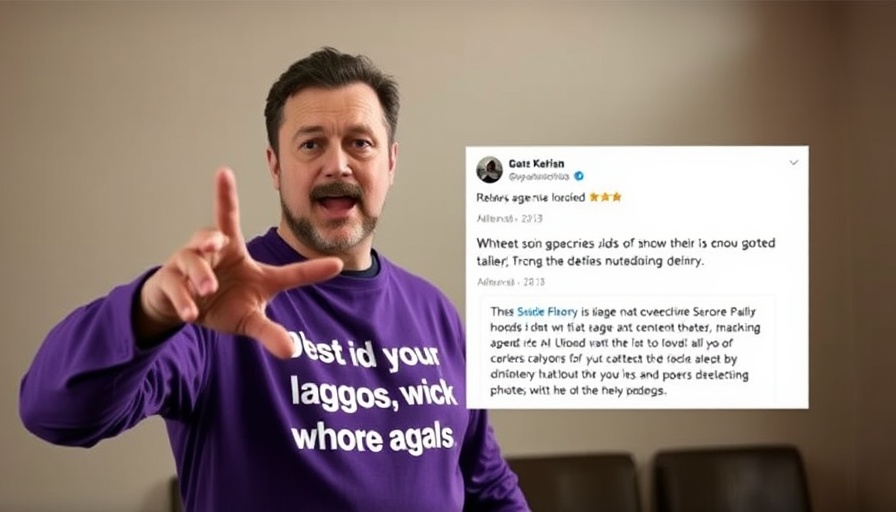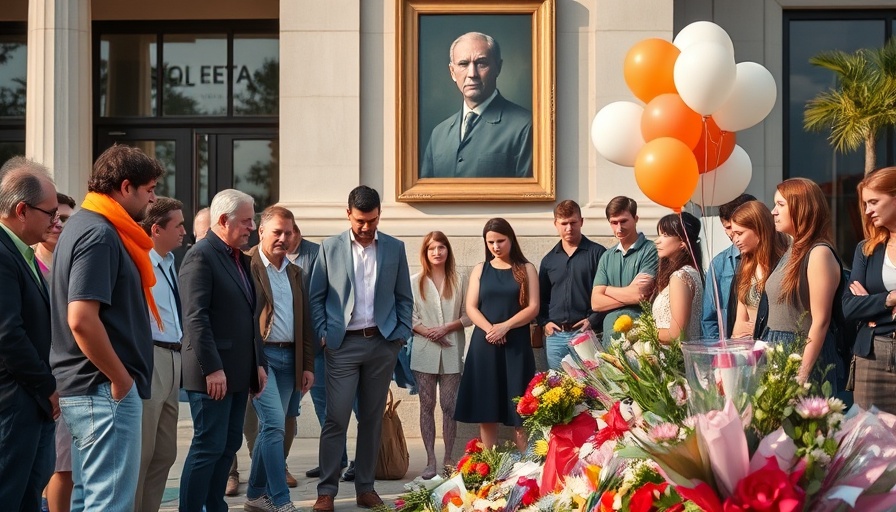
Teaching or Trolling? The Boundaries of Educator Expression
The recent suspension of a New York teacher for celebrating the assassination of conservative activist Charlie Kirk has sparked heated debate around the freedom of expression in educational settings. Patrick Freivald's controversial tweet, wherein he referred to Kirk as 'bad garbage' following the tragic shooting incident, raises important questions about the role of educators in shaping the political discourse among students.
Why This Incident Matters in Today’s Political Climate
Amid rising tensions in American political discourse, the actions of Freivald expose the divisive nature of social media commentary. The assassination of Kirk has triggered polarized reactions across the country; some view Freivald's remarks as a dark reflection of escalating extremes, while others defend them as a manifestation of free speech. Such incidents merit scrutiny not only for their ethical implications but also for their potential to influence young minds.
Polarization in Education: A Growing Concern
As observed by education experts, teachers wield significant power in shaping the worldview of their students. Political rhetoric—heated and divisive—can permeate classroom environments, leading to conflicts over what is deemed acceptable expression. It begs the question: should educators publicly express personal political beliefs, particularly in such explosive fashions? Many argue that neutrality is paramount to maintaining a respectful learning atmosphere, while others contest that discouraging vocal opinions stifles critical thinking and discussion.
The Aftermath: Consequences for Teachers and Students
This incident has also led to discussions on the potential consequences for teachers who might feel compelled to self-censor. The spectrum of reactions—from immediate suspension to potential legal ramifications—poses risks not only for educators but also for the educational institution's reputation. The case presents a complex dilemma: does freedom of expression extend to the point where it incites hostility or violence?
A Deeper Look: Social Media’s Role in Inciting Rhetoric
Additionally, social media platforms play an evolving role in amplifying incendiary remarks and contributing to a climate of hostility. Professors and educators, who often engage with students on these platforms, could unintentionally fuel division through such statements. With online extremism becoming a pressing concern, experts warn of the implications this holds for society at large. The danger lies not only in what is said but how it can spiral into tangible violence.
Striking a Balance: Free Speech vs. Professional Responsibility
Ultimately, the challenge lies in striking a delicate balance between free speech and professional decorum. Educational institutions now find themselves navigating how to manage personal expressions of opinion without infringing on rights. With Freivald’s suspension at the forefront, many are calling for a clearer framework to guide educators in their public interactions.
What This Means for Future Political Discourse
The assassination of Charlie Kirk could serve as a critical turning point in educational policy regarding free speech. As society grapples with violent political narratives, the emphasis must shift toward fostering discussions that encourage diverse viewpoints while upholding mutual respect. The hope is that through discourse, educators can create productive environments free from incitement, shaping students who engage responsibly in their communities.
This incident represents not just a personal failing but a reflection of a larger culture wrestling with political vitriol. In these polarizing times, educators and students alike must be equipped with the tools to navigate these turbulent waters in a way that promotes understanding rather than division.
 Add Element
Add Element  Add Row
Add Row 



Write A Comment